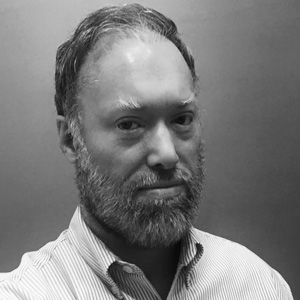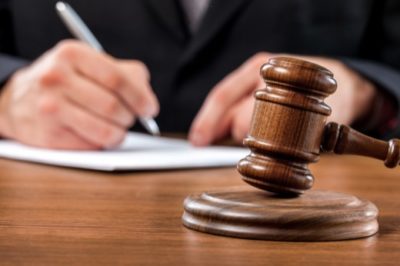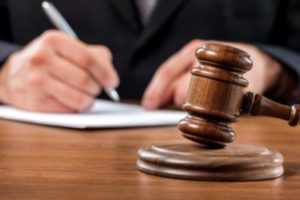In fictional dramas, you have probably seen defendants pleading “not guilty by reason of insanity.” If you have never witnessed firsthand the criminal case against a defendant with a mental illness, you may have some incorrect assumptions about how a defendant’s mental health affects the way that South Carolina criminal defense lawyers respond to the accusations brought against their clients. In real life, the insanity plea is anything but a “get out of jail” card.
The stereotype about insanity pleas goes that a defendant commits a heinous crime, and his attorney argues that the defendant should not be found guilty because his mental illness prevented him from understanding the severity of his actions or even realizing what he was doing. The criminal defense attorney seems to be arguing that, for the period of time in which the crimes took place, the defendant temporarily turned into Mr. Hyde, but the jury should acquit him and trust that he will remain as Dr. Jekyll indefinitely. In reality, a jury would never accept such a defense. It reflects not only a poor understanding of mental illness, but also a poor understanding of criminal law.
Insanity Pleas in South Carolina
The South Carolina Code of Laws permits defendants to plead not guilty by reason of insanity. According to South Carolina law, insanity is an affirmative defense. An affirmative defense is one in which the criminal defense attorney argues that his client should be found not guilty even if the prosecution is able to prove beyond a reasonable doubt that the defendant committed the crime with which he has been charged. In other words, an affirmative defense is where the defendant argues that, even if he did commit the act for which he is charged, he should not be blamed for it. A more clear-cut example of an affirmative defense is self-defense. In other words, many defendants accused of killing or injuring another person have successfully argued that they did so only to protect their own lives. There is always some risk involved with using affirmative defenses, because they leave little doubt that the defendant actually committed the illegal act.
In order for an insanity plea to be successful, that is, to convince the jury that the defendant should be found not guilty, the defense must convince the jury that the defendant’s mental illness prevented him from knowing right from wrong. Simply demonstrating that mental illness interfered with the defendant’s impulse control is not sufficient to result in a verdict of not guilty. It is entirely possible for the defendant to be convicted of the crime, even if the jury has been made aware of the defendant’s mental illness.
What Happens When a Defendant Pleads Insanity?
If a defendant argues that a mental illness led him to commit a crime, the jury might find him not guilty by reason of insanity, or it may still find him guilty, meaning that his disordered state of mental health does not excuse his actions or was not the only factor that led him to commit the crime. If the jury declares the defendant not guilty by reason of insanity, the judge refers the defendant for psychiatric evaluation and treatment at a South Carolina State Hospital. The defendant’s hospitalization can last as long as 120 days. At the end of the hospitalization period, psychiatrists at the hospital submit a report about the defendant’s state of mental health, perhaps including recommendations for treatment on an inpatient or outpatient basis. Based on the medical report, the judge can order the defendant to stay in a psychiatric hospital for further treatment. If the assessment given in the report is for a less severe case of mental illness, the judge may order the defendant released from the hospital but require him to take the psychiatric medications recommended by the doctors.
If the jury finds the defendant guilty, the judge often sentences him to whatever the usual punishment is for the crime he committed. If the sentence involves a prison term, the judge may order the defendant to spend a certain amount of time in a psychiatric hospital before entering prison.
Why Defendants Should Exercise Caution in Using the Insanity Criminal Defense
According to the National Alliance on Mental Health, approximately 1 in 5 Americans experience some form of mental illness in any given year. This figure is the same for those charged with crimes as it is for the general population. While the social stigma surrounding mental illness has certainly lessened in recent years (outside of the criminal courts, the word “insanity” is rarely used to refer to mental illnesses), most people would prefer that their mental health not be a matter of public discussion. The medical profession has gone to great lengths to preserve patient privacy and to give patients a sense of agency regarding their treatment. If you have ever had a chronic illness, you probably appreciate being able to make the choice about to whom to disclose your diagnosis. You also probably would not want a judge demanding that you take certain medications. Imagine it suddenly becoming a crime to stop taking your medication if it didn’t work or had unbearable side effects.
Even more importantly, proving that you have a mental illness is no guarantee that you will be found innocent or evade punishment. In many criminal defense cases, you can still be found guilty, and as part of your sentence, you now have the justice system making decisions about your health. Even if you are found innocent, you might still end up with less freedom, not more.
Contact The Law Office of H. Chase Harbin Law for Criminal Defense Legal Advice
Your mental illness may or may not be an important factor in your criminal law case. If you have questions about your mental health, contact a physician. If you need advice about criminal charges that have been brought against you, contact The Law Office of H. Chase Harbin for a legal consultation. The Law Office of H. Chase Harbin is a law firm based in Greenville, South Carolina. It handles criminal defense cases, including those related to driving under the influence.

Chase Harbin is a Criminal Defense Lawyer who practices in Pickens and Greenville, SC. He graduated from the University of South Carolina School of Law, and has been practicing law for 17 years now. Chase Harbin believes in defending the accused. Learn more about his experience by clicking here.


